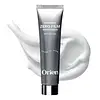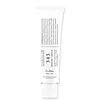What's inside
What's inside
 Key Ingredients
Key Ingredients

 Benefits
Benefits

 Concerns
Concerns

 Ingredients Side-by-side
Ingredients Side-by-side

Water
Skin ConditioningDimethicone
EmollientGlycerin
HumectantCetyl Ethylhexanoate
EmollientHydrogenated Poly(C6-14 Olefin)
EmollientButylene Glycol
HumectantNiacinamide
SmoothingArachidyl Alcohol
EmollientBehenyl Alcohol
EmollientTheobroma Grandiflorum Seed Butter
Skin ConditioningC14-22 Alcohols
Emulsion Stabilising1,2-Hexanediol
Skin ConditioningPalmitic Acid
EmollientArachidyl Glucoside
EmulsifyingStearic Acid
CleansingHydroxyacetophenone
AntioxidantPolyacrylate-13
C12-20 Alkyl Glucoside
EmulsifyingPolymethylsilsesquioxane
Arginine
MaskingCarbomer
Emulsion StabilisingPolyisobutene
Panthenol
Skin ConditioningDipropylene Glycol
HumectantCeramide NP
Skin ConditioningEthylhexylglycerin
Skin ConditioningAdenosine
Skin ConditioningPolysorbate 20
EmulsifyingSodium Phytate
Sorbitan Isostearate
EmulsifyingHydrogenated Lecithin
EmulsifyingMyristic Acid
CleansingGlucose
HumectantGlyceryl Stearate
EmollientArachidic Acid
CleansingSodium Hyaluronate
HumectantCholesterol
EmollientCeramide As
Skin ConditioningCeramide AP
Skin ConditioningCeramide Ns
Skin ConditioningLauric Acid
CleansingArtemisia Princeps Leaf Extract
Skin ConditioningCentella Asiatica Extract
CleansingCeramide EOP
Skin ConditioningWater, Dimethicone, Glycerin, Cetyl Ethylhexanoate, Hydrogenated Poly(C6-14 Olefin), Butylene Glycol, Niacinamide, Arachidyl Alcohol, Behenyl Alcohol, Theobroma Grandiflorum Seed Butter, C14-22 Alcohols, 1,2-Hexanediol, Palmitic Acid, Arachidyl Glucoside, Stearic Acid, Hydroxyacetophenone, Polyacrylate-13, C12-20 Alkyl Glucoside, Polymethylsilsesquioxane, Arginine, Carbomer, Polyisobutene, Panthenol, Dipropylene Glycol, Ceramide NP, Ethylhexylglycerin, Adenosine, Polysorbate 20, Sodium Phytate, Sorbitan Isostearate, Hydrogenated Lecithin, Myristic Acid, Glucose, Glyceryl Stearate, Arachidic Acid, Sodium Hyaluronate, Cholesterol, Ceramide As, Ceramide AP, Ceramide Ns, Lauric Acid, Artemisia Princeps Leaf Extract, Centella Asiatica Extract, Ceramide EOP
Water
Skin ConditioningPropanediol
SolventGlycerin
HumectantCyclohexasiloxane
Emollient1,2-Hexanediol
Skin ConditioningNiacinamide
SmoothingCaprylic/Capric Triglyceride
MaskingPolyglycerin-3
HumectantPanthenol
Skin ConditioningPolyglyceryl-10 Stearate
Skin ConditioningHydrogenated Polydecene
EmollientHydrogenated Poly(C6-14 Olefin)
EmollientDicaprylyl Carbonate
EmollientAmmonium Acryloyldimethyltaurate/Vp Copolymer
C14-22 Alcohols
Emulsion StabilisingPolymethylsilsesquioxane
C12-20 Alkyl Glucoside
EmulsifyingButylene Glycol
HumectantAcrylates/C10-30 Alkyl Acrylate Crosspolymer
Emulsion StabilisingEthylhexylglycerin
Skin ConditioningPolyquaternium-51
Skin ConditioningTromethamine
BufferingSodium Hyaluronate
HumectantCoptis Japonica Root Extract
Skin ConditioningHouttuynia Cordata Extract
Skin ConditioningOenothera Biennis Flower Extract
AstringentBeta-Glucan
Skin ConditioningResveratrol
AntioxidantGardenia Florida Fruit Extract
Skin ConditioningLavandula Angustifolia Flower Extract
CleansingOpuntia Ficus-Indica Stem Extract
Skin ConditioningHydrolyzed Hyaluronic Acid
HumectantCentella Asiatica Leaf Extract
Skin ConditioningPhenoxyethanol
PreservativeHibiscus Sabdariffa Flower Extract
Skin ConditioningTocopherol
AntioxidantCorallina Officinalis Extract
Skin ConditioningCeramide NP
Skin ConditioningWater, Propanediol, Glycerin, Cyclohexasiloxane, 1,2-Hexanediol, Niacinamide, Caprylic/Capric Triglyceride, Polyglycerin-3, Panthenol, Polyglyceryl-10 Stearate, Hydrogenated Polydecene, Hydrogenated Poly(C6-14 Olefin), Dicaprylyl Carbonate, Ammonium Acryloyldimethyltaurate/Vp Copolymer, C14-22 Alcohols, Polymethylsilsesquioxane, C12-20 Alkyl Glucoside, Butylene Glycol, Acrylates/C10-30 Alkyl Acrylate Crosspolymer, Ethylhexylglycerin, Polyquaternium-51, Tromethamine, Sodium Hyaluronate, Coptis Japonica Root Extract, Houttuynia Cordata Extract, Oenothera Biennis Flower Extract, Beta-Glucan, Resveratrol, Gardenia Florida Fruit Extract, Lavandula Angustifolia Flower Extract, Opuntia Ficus-Indica Stem Extract, Hydrolyzed Hyaluronic Acid, Centella Asiatica Leaf Extract, Phenoxyethanol, Hibiscus Sabdariffa Flower Extract, Tocopherol, Corallina Officinalis Extract, Ceramide NP
 Reviews
Reviews

Ingredients Explained
These ingredients are found in both products.
Ingredients higher up in an ingredient list are typically present in a larger amount.
1,2-Hexanediol is a synthetic liquid and another multi-functional powerhouse.
It is a:
- Humectant, drawing moisture into the skin
- Emollient, helping to soften skin
- Solvent, dispersing and stabilizing formulas
- Preservative booster, enhancing the antimicrobial activity of other preservatives
Butylene Glycol (or BG) is used within cosmetic products for a few different reasons:
Overall, Butylene Glycol is a safe and well-rounded ingredient that works well with other ingredients.
Though this ingredient works well with most skin types, some people with sensitive skin may experience a reaction such as allergic rashes, closed comedones, or itchiness.
Learn more about Butylene GlycolWe don't have a description for C12-20 Alkyl Glucoside yet.
C14-22 Alcohols is made up of synthetic fatty alcohols. More specifically, these fatty alcohols contain 14 to 22 carbons in the alkyl chain.
Its main purpose is to stabilize products. As an emulsifier, it helps prevent waters and oils from separating.
Ceramide NP is a type of ceramide and formally known as ceramide 3.
Ceramides are intercellular lipids naturally found in our skin that bonds dead skin cells together to create a barrier. They are known for their ability to hold water and thus are a great ingredient for dry skin.
Ceramides are an important building block for our skin barrier. A stronger barrier helps the skin look more firm and hydrated. By bolstering the skin ceramides act as a barrier against irritating ingredients. This can help with inflammation as well.
If you would like to eat ceramides, sweet potatoes contain a small amount.
Read more about other common types of ceramides here:
Ceramide AP
Ceramide EOP
Ethylhexylglycerin (we can't pronounce this either) is commonly used as a preservative and skin softener. It is derived from glyceryl.
You might see Ethylhexylglycerin often paired with other preservatives such as phenoxyethanol. Ethylhexylglycerin has been found to increase the effectiveness of these other preservatives.
Glycerin is already naturally found in your skin. It helps moisturize and protect your skin.
A study from 2016 found glycerin to be more effective as a humectant than AHAs and hyaluronic acid.
As a humectant, it helps the skin stay hydrated by pulling moisture to your skin. The low molecular weight of glycerin allows it to pull moisture into the deeper layers of your skin.
Hydrated skin improves your skin barrier; Your skin barrier helps protect against irritants and bacteria.
Glycerin has also been found to have antimicrobial and antiviral properties. Due to these properties, glycerin is often used in wound and burn treatments.
In cosmetics, glycerin is usually derived from plants such as soybean or palm. However, it can also be sourced from animals, such as tallow or animal fat.
This ingredient is organic, colorless, odorless, and non-toxic.
Glycerin is the name for this ingredient in American English. British English uses Glycerol/Glycerine.
Learn more about GlycerinWe don't have a description for Hydrogenated Poly(C6-14 Olefin) yet.
Niacinamide is a multitasking form of vitamin B3 that strengthens the skin barrier, reduces pores and dark spots, regulates oil, and improves signs of aging.
And the best part? It's gentle and well-tolerated by most skin types, including sensitive and reactive skin.
You might have heard of "niacin flush", or the reddening of skin that causes itchiness. Niacinamide has not been found to cause this.
In very rare cases, some individuals may not be able to tolerate niacinamide at all or experience an allergic reaction to it.
If you are experiencing flaking, irritation, and dryness with this ingredient, be sure to double check all your products as this ingredient can be found in all categories of skincare.
When incorporating niacinamide into your routine, look out for concentration amounts. Typically, 5% niacinamide provides benefits such as fading dark spots. However, if you have sensitive skin, it is better to begin with a smaller concentration.
When you apply niacinamide to your skin, your body converts it into nicotinamide adenine dinucleotide (NAD). NAD is an essential coenzyme that is already found in your cells as "fuel" and powers countless biological processes.
In your skin, NAD helps repair cell damage, produce new healthy cells, support collagen production, strengthen the skin barrier, and fight environmental stressors (like UV and pollution).
Our natural NAD levels start to decline with age, leading to slower skin repair, visible aging, and a weaker skin barrier. By providing your skin niacinamide, you're recharging your skin's NAD levels. This leads to stronger, healthier, and younger looking skin.
Another name for vitamin B3 is nicotinamide. This vitamin is water-soluble and our bodies don't store it. We obtain Vitamin B3 from either food or skincare. Meat, fish, wheat, yeast, and leafy greens contain vitamin B3.
The type of niacinamide used in skincare is synthetically created.
Learn more about NiacinamidePanthenol is a common ingredient that helps hydrate and soothe the skin. It is found naturally in our skin and hair.
There are two forms of panthenol: D and L.
D-panthenol is also known as dexpanthenol. Most cosmetics use dexpanthenol or a mixture of D and L-panthenol.
Panthenol is famous due to its ability to go deeper into the skin's layers. Using this ingredient has numerous pros (and no cons):
Like hyaluronic acid, panthenol is a humectant. Humectants are able to bind and hold large amounts of water to keep skin hydrated.
This ingredient works well for wound healing. It works by increasing tissue in the wound and helps close open wounds.
Once oxidized, panthenol converts to pantothenic acid. Panthothenic acid is found in all living cells.
This ingredient is also referred to as pro-vitamin B5.
Learn more about PanthenolPolymethylsilsesquioxane is a silicone used as a film forming agent.
When applied to the skin, this ingredient creates an invisible film on the surface. This film still allows oxygen to pass through, but prevents moisture from escaping. This can help condition and hydrate the skin. It also leaves a silky feel when applied.
Polymethylsilsesquioxane has not been shown to clog pores. It has been deemed safe to use up to 55%, but most cosmetics use much less.
If you have concerns about using this ingredient, we recommend speaking with a professional.
Learn more about PolymethylsilsesquioxaneSodium Hyaluronate is hyaluronic acid's salt form. It is commonly derived from the sodium salt of hyaluronic acid.
Like hyaluronic acid, it is great at holding water and acts as a humectant. This makes it a great skin hydrating ingredient.
Sodium Hyaluronate is naturally occurring in our bodies and is mostly found in eye fluid and joints.
These are some other common types of Hyaluronic Acid:
Learn more about Sodium HyaluronateWater. It's the most common cosmetic ingredient of all. You'll usually see it at the top of ingredient lists, meaning that it makes up the largest part of the product.
So why is it so popular? Water most often acts as a solvent - this means that it helps dissolve other ingredients into the formulation.
You'll also recognize water as that liquid we all need to stay alive. If you see this, drink a glass of water. Stay hydrated!
Learn more about Water